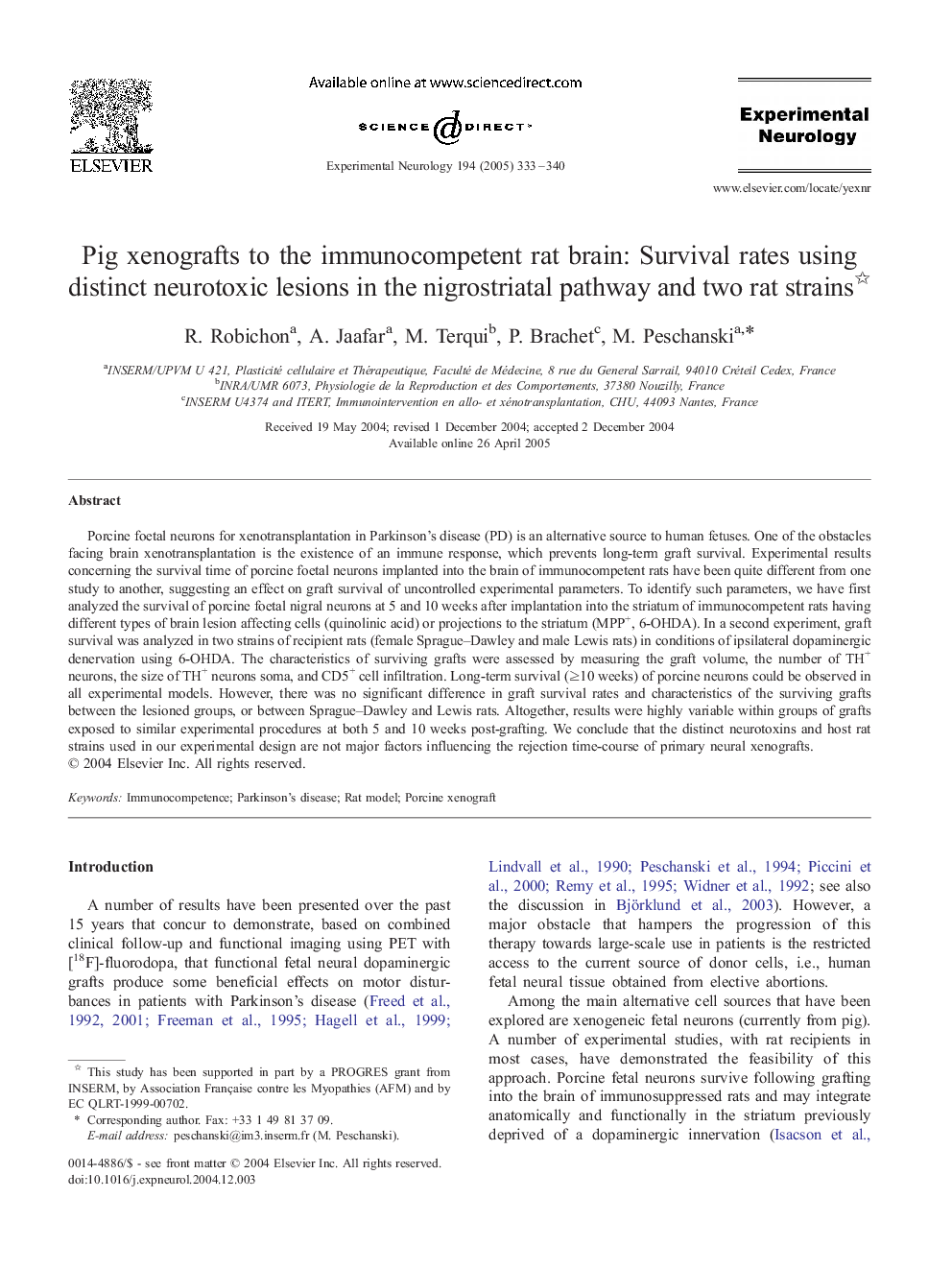| Article ID | Journal | Published Year | Pages | File Type |
|---|---|---|---|---|
| 9192102 | Experimental Neurology | 2005 | 8 Pages |
Abstract
Porcine foetal neurons for xenotransplantation in Parkinson's disease (PD) is an alternative source to human fetuses. One of the obstacles facing brain xenotransplantation is the existence of an immune response, which prevents long-term graft survival. Experimental results concerning the survival time of porcine foetal neurons implanted into the brain of immunocompetent rats have been quite different from one study to another, suggesting an effect on graft survival of uncontrolled experimental parameters. To identify such parameters, we have first analyzed the survival of porcine foetal nigral neurons at 5 and 10 weeks after implantation into the striatum of immunocompetent rats having different types of brain lesion affecting cells (quinolinic acid) or projections to the striatum (MPP+, 6-OHDA). In a second experiment, graft survival was analyzed in two strains of recipient rats (female Sprague-Dawley and male Lewis rats) in conditions of ipsilateral dopaminergic denervation using 6-OHDA. The characteristics of surviving grafts were assessed by measuring the graft volume, the number of TH+ neurons, the size of TH+ neurons soma, and CD5+ cell infiltration. Long-term survival (â¥10 weeks) of porcine neurons could be observed in all experimental models. However, there was no significant difference in graft survival rates and characteristics of the surviving grafts between the lesioned groups, or between Sprague-Dawley and Lewis rats. Altogether, results were highly variable within groups of grafts exposed to similar experimental procedures at both 5 and 10 weeks post-grafting. We conclude that the distinct neurotoxins and host rat strains used in our experimental design are not major factors influencing the rejection time-course of primary neural xenografts.
Related Topics
Life Sciences
Neuroscience
Neurology
Authors
R. Robichon, A. Jaafar, M. Terqui, P. Brachet, M. Peschanski,
